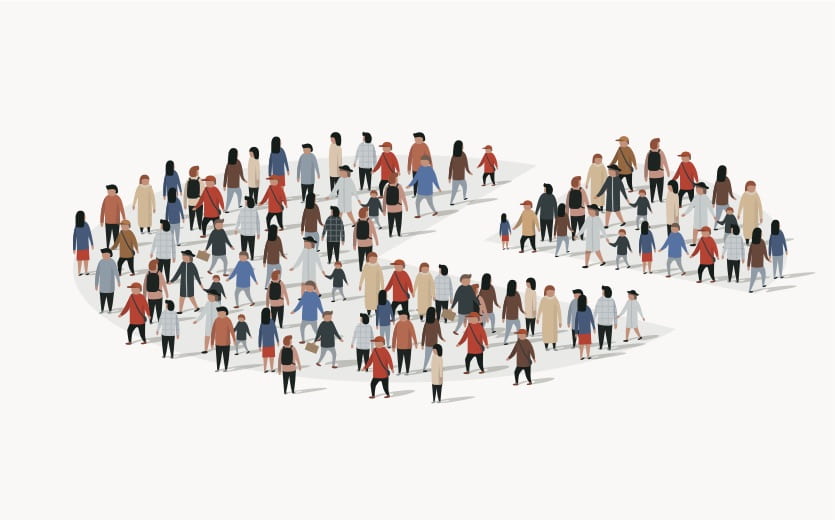 This year the U.S. Census Bureau began the monumental effort of counting the population of the country, starting in January with a remote village in Alaska. This undertaking takes place every 10 years, but the Bureau is active every year, collecting an enormous body of data via monthly surveys to get an ongoing pulse on various issues, including employment and unemployment, healthcare, household size and incomes, to name a few. So why is this data collection important, from an economist’s perspective?
This year the U.S. Census Bureau began the monumental effort of counting the population of the country, starting in January with a remote village in Alaska. This undertaking takes place every 10 years, but the Bureau is active every year, collecting an enormous body of data via monthly surveys to get an ongoing pulse on various issues, including employment and unemployment, healthcare, household size and incomes, to name a few. So why is this data collection important, from an economist’s perspective?
Professors in the Driehaus College of Business shed some light on how they use census data in their research and teaching.
“As a macroeconomist, I use census data all the time for the analysis of unemployment,” shares Mike Miller, associate dean and economics professor in the college. “Analyzing the number of people in and out of work helps us measure production and the size of the economy. The census is so important because it’s what we economists use to figure out this information.”
William Sanders, emeritus professor who taught in the Department of Economics for more than three decades before retiring in 2019, is an expert on urban economic development and education economics. He used census data extensively in his research to study the correlation between household location and educational attainment in Chicago metropolitan areas, including how private school options in Chicago affect academic achievement for various demographic groups.
“The census provides a large sample of households that enables us researchers to statistically estimate the effects of numerous factors like education and demographic characteristics on a large number of outcomes like employment, wages and income,” says Sanders.
The college’s Institute for Housing Studies, meanwhile, regularly engages in research around housing affordability, housing finance, homeownership, sustainable neighborhood redevelopment and other emerging trends—all of which rely heavily on census data.
As part of their work, the institute produces an annual report called the State of Rental Housing in Cook County that tracks changing rental demand, the supply of rental housing, and how these dynamics affect access to affordable rental housing for Cook County’s lowest income households.
“The census is really the only publicly available data source that allows us to understand current and changing economic and demographic conditions at the neighborhood level,” explains Geoff Smith, executive director of the Institute for Housing Studies. “This type of information is critical for understanding the changing nature of housing demand. We even used it in our work supporting the development of Chicago’s most recent Five-Year Housing Plan.”
Census data also finds its way into DePaul business classrooms—and not just economics courses. Associate Professor Suzanne Fogel, who teaches in the Department of Marketing, has created census assignments in her Precision Marketing course. “One of the assignments is to have students compare two zip codes, write consumer profiles of each, and recommend five products for each area that would be a good fit, but wouldn’t be right for the other area, and five products that would be a good fit for both,” explains Fogel.
Fogel’s assignments teach students how to pull data from the census at very detailed levels and how to put together a coherent profile from disparate data. “Students also learn the limitations of relying on demographic data for marketing, instead of things like product purchase data, market research data and other sources,” she says.
The 2020 Census operations will continue through the remainder of the calendar year, and it has never been easier to respond; individuals can complete the census either online, over the phone or by mail. And what about the April, 1, 2020 Census Day? It’s not a deadline, it’s merely a reference date to inform the U.S. Census Bureau of where you live as of April 1. So if you haven’t filled out the census yet, you can still do so. Just visit 2020census.gov.
By Nadia Alfadel Coloma

